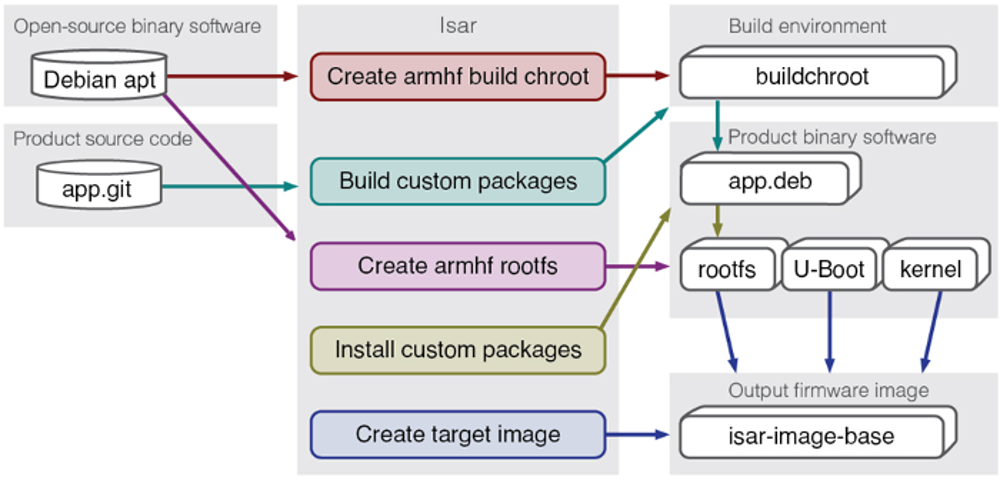
Isar Product Build System

Create complete firmware images
Today's products consist of hundreds to thousands of
software components. Bringing them together is a
time-consuming task that doesn't add value to the
product. Isar provides a standard, proven way of building products
while keeping 100% flexibility of a custom build system.
Isar creates complete, bootable firmware images for the target hardware -- with one command, on demand. It uses BitBake, the build system behind OpenEmbedded / Yocto. The images contain everything -- from boot loader, OS kernel and system files to product applications and data. Images are built and work out of the box; the base image and build rules can be reused in your product.
Build your software
The value of any product lies in its applications that have to be built from
the source code. Besides, third-party software almost always needs to be
modified to meet product requirements; that software also has to be built.
Isar builds custom software and modified third-party components and installs them into the firmware image. The source code is structured in layers according to the maintenance lifecycle (e.g., company common components, third-party components, product-specific components).
Single code base, multiple products
Products are constantly evolving, leading to changes in software. Older
products have to be supported along with the newer ones. Or, several products
share the same code base. Whatever the reason -- code reuse is nowadays a must.
Isar creates as many applications, packages, images as necessary for one or more products. Those artifacts can be similar or disparate, for the same CPU architecture or for different ones. Isar makes sharing components and managing differences easy and efficient. The tools fit particularly well into continuous integration infrastructure.
Solid base system
Time to market is essential in today's competitive environment. Developing
everything in-house is not anymore an option for many industries.
Isar offers Debian as its default base system. Debian features pre-tested binary software, security updates, and long-term maintenance. It scales from small products to product lines. Debian follows a strict licensing process, which is important for building a product with open-source components.
